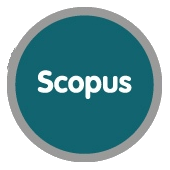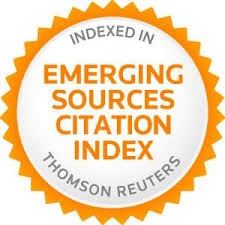Liderazgo pedagógico en directores nóveles en Chile: Prácticas de observación de clases y retroalimentación a profesores
Resumen
El rol de los directores escolares es clave para movilizar la mejora de los centros escolares. A través de un enfoque cualitativo-longitudinal utilizando la técnica thin-slice, este artículo examinó la calidad de las prácticas asociadas con la observación en el aula y la retroalimentación proporcionada por 10 directores nóveles al final de su primer y su segundo año en el cargo. Los resultados de este estudio señalan que el patrón de observación de los directores nóveles experimenta cambios desde el primer al segundo año en el cargo, desde un foco en los docentes y el contenido hacia un foco en la interacción contenidos-estudiantes. Respecto del tipo de retroalimentación en el año 2 se observa mayor uso de una retroalimentación más descriptiva que evaluativa. Los resultados de esta investigación muestran cómo con más experiencia los directores fortalecen su liderazgo pedagógico. No obstante, las limitaciones observadas el año 1 y el escaso uso de retroalimentación que promueva la metacognición y reflexión en los docentes sugieren que la observación en aula y retroalimentación a los docentes son prácticas a desarrollar por los programas de formación para directores.
Palabras clave
Referencias
Amaranti, M. (2010). Evaluación de la educación: Concepciones y prácticas de retroalimentación de los profesores de lenguaje y comunicación de primer año de educación media, investigación cualitativa con estudio de caso. Recuperado de http://www.adeepra.org.ar/congresos/Congreso%20IBEROAMERICANO/EVALUACION/RLE2488_Amaranti.pdf
Anijovich, R. (2010). La retroalimentación en la evaluación. En R. Anijovich, (Comp.), La evaluación significativa. Buenos Aires: Paidós.
Arlestig, H., & Tornsen, M. (2014). Classroom observations and supervision – essential dimensions of pedagogical leadership. International Journal of Educational Management, 28(7), 856-868.
Barber, M., Whelan, F., & Clark, M. (2010). Capturing the leadership premium. How the world’s top school systems are building leadership capacity for the future. London: McKinsey Report.
Barnett, W. S., Epstein, D. J., Friedman, A. H., Boyd, J. S., & Hustedt, J. T. (2008). The state of preschool 2008: State preschool yearbook. New Brunswick, NJ: National Institute for Early Education Research, Rutgers University.
Bell, C., Gitomer, D., McCaffrey, D., Hamre, K., Pianta., C., & Qi, Y. (2012). An argument approach to observation protocol validity. Educational Assessment, 17(2-3), 62-87.
Black, P., & Wiliams, D. (1998). Assessment and classroom learning. Assessment in Education: Principles, Policy and Practice, 5(1), 7-73.
Blase, J., & Blase, J. (2000). Effective instructional leadership: Teachers' perspectives on how principals promote teaching and learning in schools. Journal of Educational Administration, 38(2), 130-141.
Blase, J., & Blase, J. (2004). Handbook of instructional leadership (Second ed.). Thousand Oaks, California: Corwin Press.
Bloom, G. (2007). Classroom visitations done well. Leadership, 36(4), 40- 44.
Brookhart, S. (2008). How to give effective feedback to your students. Alexandria, VA, USA: Association for Supervision & Curriculum Development.
Brown, S., Jones, G., & Rawnsley, S. (1993). Observing teaching. Birmingham: SEDA Paper 79.
Casabianca, J., McCaffrey, M., Gitomer, D., Bell, C., Hamre, B., & Pianta, R. (2013). Effect of observation mode on measures of secondary mathematics teaching, Educational and Psychological Measurement, 73(5), 757-783.
Clarke, S. (2003). Enriching feedback. London: Hodder and Stoughton.
Cockburn, J. (2005). Perspectives and politics of classroom observation. Research in Post Compulsory Education, 10(3), 373–388.
Cohen, D., Raudenbush, S., & Ball, D. (2003). Resources, instruction, and research. Educational Evaluation and Policy Analysis, 25(2), 1-24.
Contreras, I., Rittershaussen, S., Correa, E., Solís, M.C., Nuñez, C., & Vásquez, N. (2013). IOC, Un instrumento para cualificar desempeño docente en aula: Su generación and validación. Estudios Pedagógicos, 39(2), 85-96.
Craig, S., Chi, M., & Vanlehn, K. (2009). Improving classroom learning by collaboratively observing human tutoring videos while problem solving. Journal of Educational Psychology, 101(4), 779-789.
Day, C. (2005). Principals who sustain success: Making a difference in schools in challenging circumstances. International Journal of Leadership in Education, 8(4), 273-290.
Fink, E., & Resnick, L. B. (2001). Developing principals as instructional leaders. Phi Delta Kappan, 82, 598-606.
Frase, L. (2005). Refocusing the purposes of teacher supervision. En F. English (Ed.), The SAGE handbook of educational leadership. Advances in theory, research, and practice (pp. 430-455). Thousand Oaks, CA: SAGE. doi: http://dx.doi.org/10.4135/9781412976091.n18
Goedele, V., Vanhoof, J., Valcke, M., & Van Petegem, P. (2010). Using school performance feedback: Perceptions of primary school principals. School Effectiveness and School Improvement, 21(2), 167-188.
Grubb, W. N. (2000). Opening classrooms and improving teaching: lessons from school inspections in England. Teachers’ College Record, 102(4), 696–723.
Haep, A., Bhnke, K., & Steins, G. (2016). Classroom observation as an instrument for school development: School principal´s perspectives on its relevance and problems. Studies in Educational Evaluation, 49, 1-6.
Hallinger, P. (2005). Instructional leadership and the school principal: A passing fancy that refuses to fade away. Leadership and Policy in Schools, 4(3), 221–239.
Ho, A., & Kane, T. (2013). The reliability of classroom of observations by school personnel. Seattle, WA: The Bill & Melinda Gates Foundation.
Holland, P. (2006). The case for expanding standards for teacher evaluation to include an instructional supervision perspective. Springer Science Business Media, 18, 67–77.
Horng, E., & Loeb, S. (2010). New thinking about instructional leadership. Phi Delta Kappan, 92(3), 66-69.
Ing, M., & Montgomery, K. (2010). Watching the game and not just keeping score: How classroom observations help improve instruction. School Administrator, 10(61), 10-15.
Leahy, C. (2012). Teacher evaluator training: ensuring quality classroom observers. Denver, CO: Education commission of the States. Recuperado de: http://www.naesp.org/sites/default/files/TeacherEvalBrief_Final.pdf
Lochmiller, C. R. (2014). Leadership coaching in an induction program for novice principals: A 3-year study. Journal of Research on Leadership Education, 9(1), 59-84.
Martínez-Rizo, F. (2012). Procedimientos para el estudio de las prácticas docentes. Revisión de la literatura. RELIEVE, 18(1), art. 1. http://dx.doi.org/10.7203/relieve.18.1.2976
Martinez, F., Taut., S & Schaaf, K. (2016). Classroom observation for evaluating and improving teaching: An international perspective. Studies in Educational Evaluation, 49, 15-29.
Mathers, C., Oliva, M., & Laine, S. W. M. (2008). Improving instruction through effective teacher evaluation: Options for states and districts. National Comprehensive Center for Teacher Quality. Washington, D.C., 1–16.
Maxwell, J. A. (2005). Qualitative research design: An interactive approach. Thousand Oaks, CA: SAGE.
Mckimm, J. (2007). How to give feedback. Professional development framework for supervisors in the London Deanery.1-2. Recuperado de: http://www.faculty.londondeanery.ac.uk/e-learning/feedback/html2pdf
McMahon, T., Barrett, T., & O’Neill, G. (2007). Using observation of teaching to improve quality: Finding your way through the muddle of competing conceptions, confusion of practice and mutually exclusive intentions. Teaching in Higher Education, 12(4), 499–511.
Meyer, J., Cash, A., & Mashburn, A. (2011). Occasions and the reliability of classroom observations: Alternative conceptualizations and methods of analysis. Educational Assessment, 16(4), 227-243.
Mourshed, M., Chijoke, C., & Barber, M. (2010). How the world´s most improved school systems keep getting better. London: McKinsey.
Müller, M., Volante, P., Grau, V., & Preiss, D. (2013). Desarrollo de habilidades de observación en la formación de liderazgo escolar a través de videos de clases. Psykhe, 23(2), 1-12.
Müller, M., Calcagni, X. Grau, V., Preiss, D., & Volante, P., (2013). Desarrollo de habilidades de observación en estudiantes de pedagogía: Resultados de una intervención piloto basada en el uso de la videoteca de buenas prácticas docentes. Estudios Pedagógicos, número especial (1), 65-74
Neumerski, C. M. (2013). Rethinking instructional leadership, a review: What do we know about principal, teacher, and coach instructional leadership, and where should we go from here? Educational Administration Quarterly, 49(2), 310–347.
O’Leary, M. (2012). Exploring the role of lesson observation in the English education system: a review of methods, models and meanings. Professional Development in Education, 38(5), 791-810
Padilla Carmona, M. T. (2008). Opiniones y experiencias en el desempeño de la dirección escolar de las mujeres en Andalucía. RELIEVE, 14(1), 1-27. doi: http://dx.doi.org/10.7203/relieve.14.1.4199
Papay, J. P. (2012). Refocusing the debate: Assessing the purposes and tools of teacher evaluation. Harvard Educational Review, 82(1), 123–167.
Pianta, R. C., & Hamre, B. J. (2009). Conceptualization, measurement, and improvement of classroom processes: Standardized observation can leverage capacity. Educational Researcher 38(2), 109–119.
Peel, D. (2005). Peer observation as a transformatory tool? Teaching in Higher Education, 10(4), 489–504.
Ramprasad, A. (1983). On the definition of feedback. Behavioral Science, 28(1) 4-13.
Robinson, V. (2010). From instructional leadership to leadership capabilities: Empirical findings and methodological challenges. Leadership and Policy in Schools, 9, 1-26.
Román, C. (2009). Sobre la retroalimentación o el feedback en la educación superior on-line. Revista Virtual Universidad Católica del Norte, 26, 1-18.
Sadler, D. R. (1989). Formative assessment and the design of instructional assessment. Instructional Science, 18, 119-144.
Santiago, P., Benavides, F., Danielson, C., Goe, L., & Nusche, D. (2013). OECD Reviews of evaluation an assessment in education: Teacher evaluation in Chile. Paris, Francia: Organization for Economic Co-operation and Development. Recuperado de: http://www.oecd.org/chile/OECD20Review20Teacher20Evaluation20Chile.pdf
Shute, V. (2008). Focus on formative feedback. Review of Educational Research, 78(1), 153-189.
Southworth, G. (2002). Instructional leadership in schools: Reflections and empirical evidence. School Leadership & Management, 22(1), 73-91.
Taylor, E. & Tyler, J. (2012). The effect of evaluation on teacher performance. American Economic Review, 102(7), 3628-3651.
Tochon, F. (2007). From video cases to video pedagogy: A framework for video feedback and reflection in pedagogical research praxis. En R. Goldman, R. Pea, B. Barron & S. J. Derry (Eds.), Video research in the learning sciences (pp. 53-66). Mahwah, N.J: Lawrence Erlbaum.
Tunstall P., & Gipps, C. (1996). Teacher feedback to young children in formative assessment: A typology. British Educational Research Journal, 22(4), 389-404.
Tuytens, M., & Devos, G. (2011) Stimulating professional learning through teacher evaluation: An impossible task for the school leader? Teaching and Teacher Education, 27, 891-899.
Witziers, B., Bosker, R. J., & Krüger, M. L. (2003). Educational leadership and student achievement: The elusive search for an association. Educational Administration Quarterly, 39(3), 398-425.
Wragg, E. C. (1999). An introduction to classroom observation. London: Routledge.
Zimmerman, S., & Deckert-Pelton, M. (2003). Evaluating the evaluators: Teachers' perceptions of the principal's role in professional evaluation. National Association of Secondary School Principals. NASSP Bulletin, 87(636), 28–37.
Enlaces refback
- No hay ningún enlace refback.


